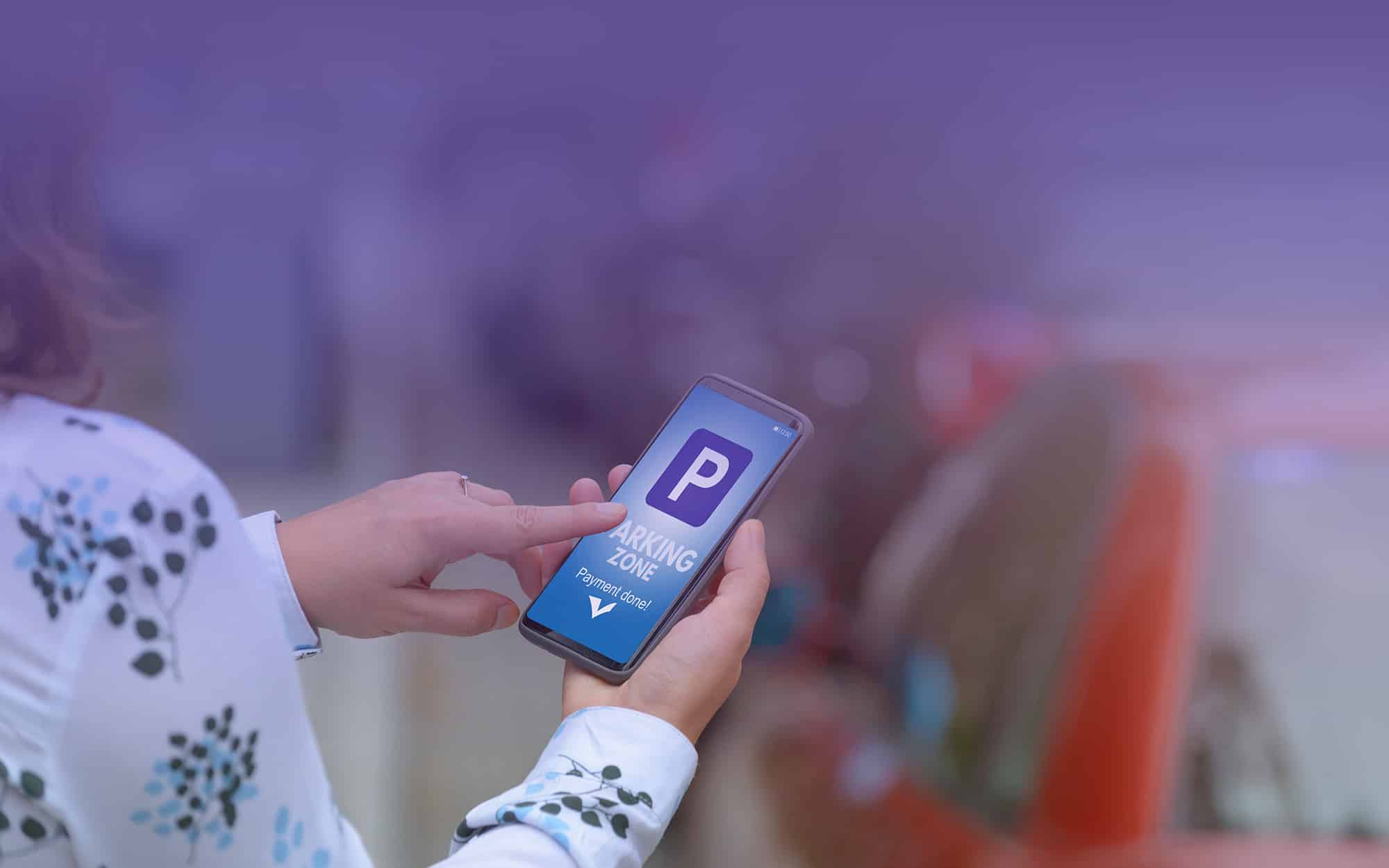
A Glimpse of the Future
From the Editor Melissa Rysak, editorrysak@parking-mobility.orgAt the IPMI Leadership Summit
Share:
Share:
At its most basic level, the parking business is still the same as it’s always been. People need a place to park, they find a lot close to their destination, and the lot charges them for the length of their stay. But what has changed over the last decade or two is how people find a parking lot. Today, more drivers are using parking aggregator websites to find convenient lots and make reservations. In fact, 92% of U.S. drivers begin their search for parking by looking online.
However, these aggregator sites are sometimes met with skepticism by traditional parking lot operators who would prefer to bring in customers the old-fashioned way. Not understanding the business model of aggregators, these lot operators often see them as competitors that are undercutting their business.
Upon further reflection, this may not be the case. Aggregators may be a way to boost customer numbers and serve as a partner for lot operators as they effectively diminish the need to outlay money and time on direct marketing.
92%
of U.S. drivers begin their search for parking by looking online.
istockphoto/Tupungato
Many lot operators may see aggregators as competition considering their relative marketing budgets. It’s hard for an independent lot operator to beat an aggregator on marketing spend. This is particularly true for small businesses with only one or two lots, which may make up a significant percentage of their business. There’s just no way they can compete with an aggregator, which could be spending a hundred times what they’re spending on search engine optimization (SEO) and platforms like AdWords.
But here’s the thing: there’s really no need for an independent lot operator to compete with an aggregator when they could be partnering. Aggregators are in the business of marketing the lots that they’re partnered with. That’s their niche, and it’s something they’ve gotten very good at over time.
Consider this: if you’re marketing your own lot, you are rarely—if ever—getting 100% returns for every dollar spent. But when you partner with an aggregator, you’re getting 100% return on investment since commission payments are solely based on results. You pay a commission only when a driver makes a reservation through the aggregator’s site—no reservation, no payment.
When you partner with an aggregator, you’re essentially outsourcing the heavy lifting of marketing. This leaves you free to handle the daily issues of running a business. Some large national operators recognize the value of the aggregator model. They still do some marketing, but for the most part, these operators partner to get reservations through aggregators. It’s a cost-effective way to do business.
Even when a customer doesn’t make a booking through an aggregator’s website, the lot operator is still achieving free visibility. This exposure helps to promote the lot operator’s presence, potentially reaching a broader audience beyond direct bookings.
Over the last decade, the number of aggregators has grown substantially. Even so, 20% of them make 80% of the reservations, so it pays to go with the best. My advice would be to start with a simple Google search for parking aggregators. Sign up with five or six of the largest and most reputable aggregators and over time whittle that number down to the two or three that are the most successful.
To make this whittling-down process more manageable, invest in software that allows you to analyze data from each aggregator. View all the reservations from aggregators through a single portal, versus reviewing several aggregator sites periodically.
I’d also advise lot owners to not attach too much importance to the cost of commissions. Most top-performing aggregators will be similar, and in most cases, cost won’t be a deciding factor. That said, those that do charge more may be spending more marketing dollars, and this will be reflected in their SEO ranking. While cost doesn’t always equate to quality, sometimes you get what you pay for.
While aggregators strive to boost visibility and reservations for partners, there are a few things operators can do to grease the wheels. For instance, how well a lot does on an aggregator’s algorithm will depend on the quality of the lot’s profile on the site. That means operators should ensure they provide good-quality images and as much information as possible on amenities and features.
Owners can also continually strive for quality customer service. That means making communication easy for customers, establishing a problem-resolution process, and avoiding oversells. Bad reviews hurt both the aggregator and the lot operator, and both parties must work together to ensure they can provide each customer with the best service possible.
Just as a rising tide lifts all ships, a good partnership can aid both aggregators and operators. Aggregators benefit from an expanded network of lots, providing customers with a diverse range of options. Lot operators, in turn, gain exposure to a broader audience, driving reservations and enhancing their presence. By fostering this sense of cooperation, both parties can flourish in tandem while creating a thriving parking industry. ◆
Dorian Paida is Director of Sales and Partner Integrations for cheapairportparking.org.

From the Editor Melissa Rysak, editorrysak@parking-mobility.orgAt the IPMI Leadership Summit

Hollywood Florida Modernizes Its Parking By Embracing the Newest Technology<

A Sustainable Approach to Parking 038 Parking Enforcement

IPMI Smart Transportation Task Force

IPMI Smart Transportation Task Force


A Sustainable Approach to Parking 038 Parking Enforcement
Parking & Mobility is IPMI’s flagship publication, covering the news, trends, analysis, technologies, and people of the parking and mobility industry, and how it affects and influences communities around the world.
| Cookie | Duration | Description |
|---|---|---|
| cookielawinfo-checkbox-advertisement | 1 year | Set by the GDPR Cookie Consent plugin, this cookie is used to record the user consent for the cookies in the "Advertisement" category . |
| cookielawinfo-checkbox-analytics | 11 months | This cookie is set by GDPR Cookie Consent plugin. The cookie is used to store the user consent for the cookies in the category "Analytics". |
| cookielawinfo-checkbox-functional | 11 months | The cookie is set by GDPR cookie consent to record the user consent for the cookies in the category "Functional". |
| cookielawinfo-checkbox-necessary | 11 months | This cookie is set by GDPR Cookie Consent plugin. The cookies is used to store the user consent for the cookies in the category "Necessary". |
| cookielawinfo-checkbox-others | 11 months | This cookie is set by GDPR Cookie Consent plugin. The cookie is used to store the user consent for the cookies in the category "Other. |
| cookielawinfo-checkbox-performance | 11 months | This cookie is set by GDPR Cookie Consent plugin. The cookie is used to store the user consent for the cookies in the category "Performance". |
| CookieLawInfoConsent | 1 year | Records the default button state of the corresponding category & the status of CCPA. It works only in coordination with the primary cookie. |
| elementor | never | This cookie is used by the website's WordPress theme. It allows the website owner to implement or change the website's content in real-time. |
| viewed_cookie_policy | 11 months | The cookie is set by the GDPR Cookie Consent plugin and is used to store whether or not user has consented to the use of cookies. It does not store any personal data. |
| Cookie | Duration | Description |
|---|---|---|
| _ga | 2 years | The _ga cookie, installed by Google Analytics, calculates visitor, session and campaign data and also keeps track of site usage for the site's analytics report. The cookie stores information anonymously and assigns a randomly generated number to recognize unique visitors. |
| _ga_02PMHW8YWC | 2 years | This cookie is installed by Google Analytics. |
| _ga_LC0QJJHM3J | 2 years | This cookie is installed by Google Analytics. |
| _ga_V9KYTSBYT2 | 2 years | This cookie is installed by Google Analytics. |
| iutk | 5 months 27 days | This cookie is used by Issuu analytic system to gather information regarding visitor activity on Issuu products. |
| Cookie | Duration | Description |
|---|---|---|
| mc | 1 year 1 month | Quantserve sets the mc cookie to anonymously track user behaviour on the website. |
| Cookie | Duration | Description |
|---|---|---|
| ultp_view_1052 | 1 day | No description |
| ultp_view_1058 | 1 day | No description |
| ultp_view_1060 | 1 day | No description |
| ultp_view_1064 | 1 day | No description |
| ultp_view_1068 | 1 day | No description |
| ultp_view_1070 | 1 day | No description |
| ultp_view_1072 | 1 day | No description |
| ultp_view_1078 | 1 day | No description |
| ultp_view_1082 | 1 day | No description |
| ultp_view_1088 | 1 day | No description |
| ultp_view_1100 | 1 day | No description |
| ultp_view_1103 | 1 day | No description |
| ultp_view_1114 | 1 day | No description |
| ultp_view_1118 | 1 day | No description |
| ultp_view_1122 | 1 day | No description |
| ultp_view_1125 | 1 day | No description |
| ultp_view_1130 | 1 day | No description |
| ultp_view_1132 | 1 day | No description |
| ultp_view_1135 | 1 day | No description |
| ultp_view_1541 | 1 day | No description |
| ultp_view_1554 | 1 day | No description |
| ultp_view_1557 | 1 day | No description |
| ultp_view_1560 | 1 day | No description |
| ultp_view_1563 | 1 day | No description |
| ultp_view_1568 | 1 day | No description |
| ultp_view_1572 | 1 day | No description |
| ultp_view_1576 | 1 day | No description |
| ultp_view_1580 | 1 day | No description |
| ultp_view_2305 | 1 day | No description |
| ultp_view_2321 | 1 day | No description |
| ultp_view_2338 | 1 day | No description |
| ultp_view_2342 | 1 day | No description |
| ultp_view_259 | 1 day | No description |
| ultp_view_270 | 1 day | No description |
| ultp_view_275 | 1 day | No description |
| ultp_view_286 | 1 day | No description |
| ultp_view_3074 | 1 day | No description |
| ultp_view_3115 | 1 day | No description |
| ultp_view_3334 | 1 day | No description |
| ultp_view_3336 | 1 day | No description |
| ultp_view_3338 | 1 day | No description |
| ultp_view_3340 | 1 day | No description |
| ultp_view_3346 | 1 day | No description |
| ultp_view_3354 | 1 day | No description |
| ultp_view_3361 | 1 day | No description |
| ultp_view_3367 | 1 day | No description |
| ultp_view_365 | 1 day | No description |
| ultp_view_367 | 1 day | No description |
| ultp_view_38 | 1 day | No description |
| ultp_view_3846 | 1 day | No description |